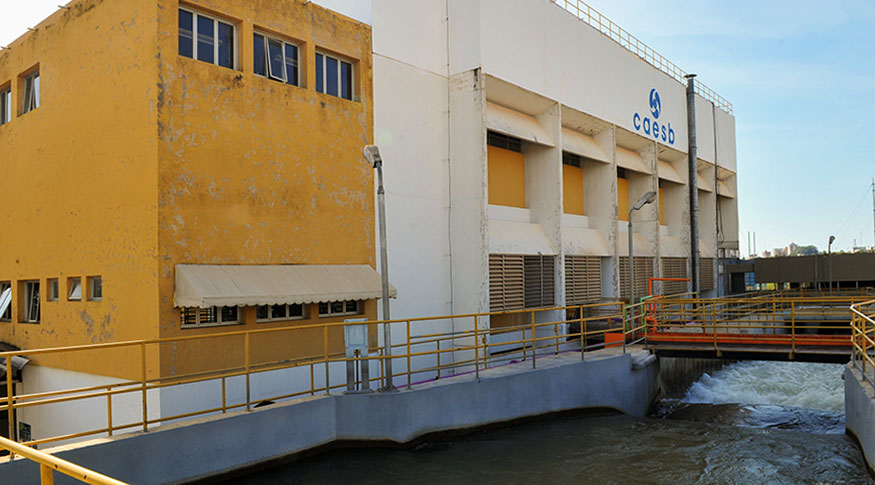IBGE em campo
Survey follows up supply and quality of basic sanitation services in Brazil
February 06, 2019 09h00 AM | Last Updated: February 06, 2019 11h45 AM

Carried out by the IBGE, the fourth edition of the National Survey of Basic Sanitation - PNSB is in the field in the 5,570 Brazilian municipalities during January, February and March. Scheduled for September this year, the survey will unveil data on the collection, treatment and distribution of water, as well as on sanitary exhaustion, which are key information to measure the structure, supply and quality of these services.
Unlike the Consumer Expenditure Survey - POF, which went to the field last year, the Continuous National Household Sample Survey - Continuous PNAD and the Population Census, the PNSB does not interview the Brazilian housing units, but those responsible for the services of basic sanitation. As a general rule, the municipalities should provide such services, which can be commissioned to concessionaires like Cedae, in Rio de Janeiro, and Sabesp, in São Paulo.
Therefore, the survey is focused on the existing supply of such services. While the Characteristics of the Housing Units edition of the Continuous PNAD describes the scenario of the life conditions of the Brazilian population on an annual basis, the PNSB checks how far is the public authority from accomplishing the mission of universalizing the supply of services of basic sanitation.
"If we think that we look at the demand when we go to housing units, i.e., what the persons need, on the other side we need to look at what is being supplied", explains Cristiane Moutinho, IBGE´s manager of Social Studies and Surveys. "More than supplying, we also check the distribution, which means how these services reach the population who will use them", completes her.
In the 2008 edition, the last one, the PNSB was carried out in partnership with the Ministry of Cities. This time, the IBGE planned and carries out the survey with its own resources. The questionnaire will have questions on water supply, sanitary exhaustion, rainwater management or drainage, solid waste management or public cleaning, and services management. "As they are complex questionnaires with technical questions, the idea is to approach the five subjects with five different informants and apart from each other", says Moutinho.
"We are currently in the field with the questionnaires on water and sanitation. The idea is doing the same later with solid waste and rainwater management. Our idea is to survey these subjects at least once at each municipal administration, which would provide a long-term picture of this sector", complements the IBGE´s manager of Social Studies and Surveys.
Unlike the household surveys, the challenge in the data collection of the PNSB is not in accessing the informants, but rather in meeting those able to answer the questionnaires. "The difficulty is meeting the appropriate informant. It should be a person that knows the subject well. They are quite technical information: water flow, volume distributed... The questionnaires are quite complex, especially those of water and sanitation", tells Moutinho.
Expectations from the collected information
Concerning the results, it is expected that the PNSB unveils a relevant evolution in the sector. In the last edition, the National Plan of Basic Sanitation had only completed its first anniversary. Moutinho tells that it is expected to discover what has really changed over the last years, whether the supply of services evolved and improved. "It is to look at how the sector has been developing along the years that did not count on the survey. And, on top of this, having regular information to produce a time series", explains her.
"For instance, we had the National Plan of Solid Waster in 2010. We did not have one back in 2008. We will take a look at the guidelines created in this period, check how it is indeed. For instance, the guideline to quit dumpsites. How is it anyway?", concludes Moutinho.




















